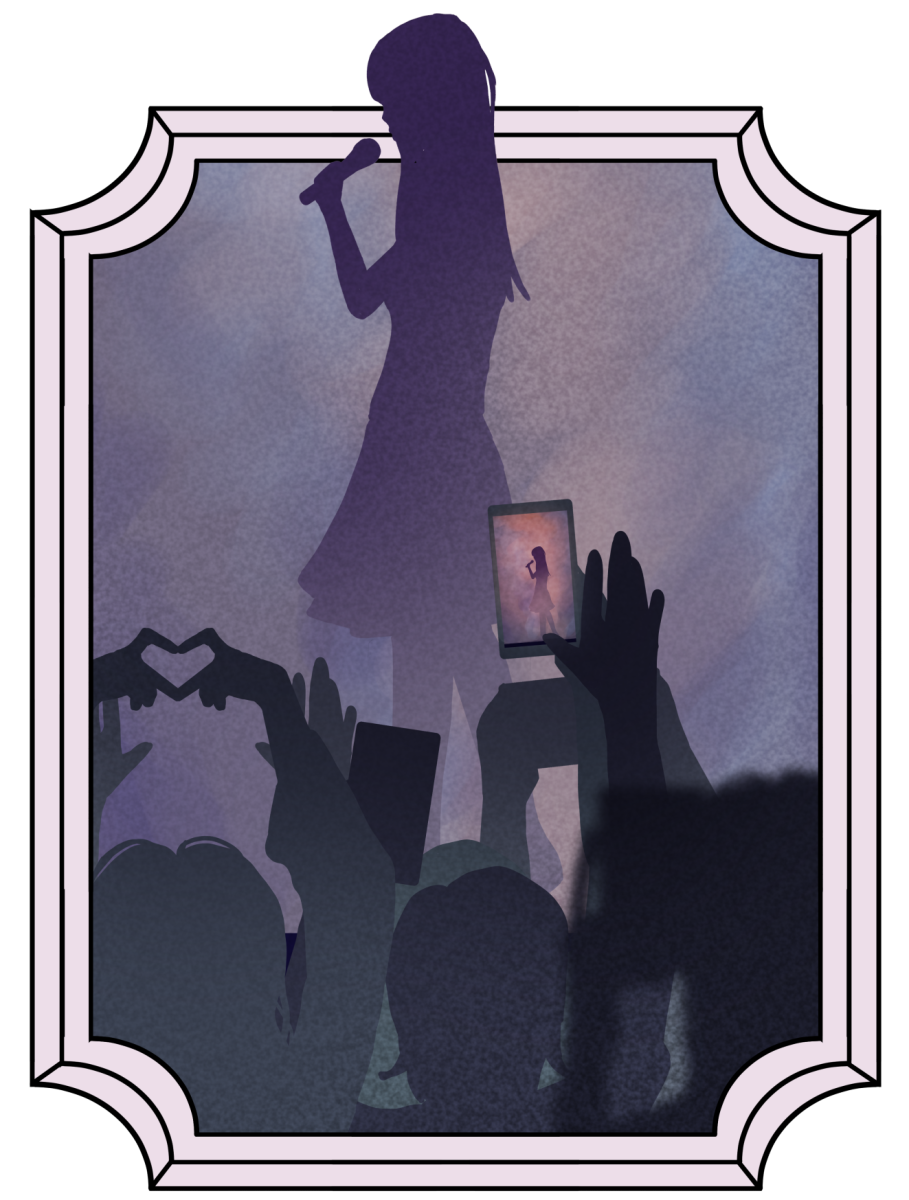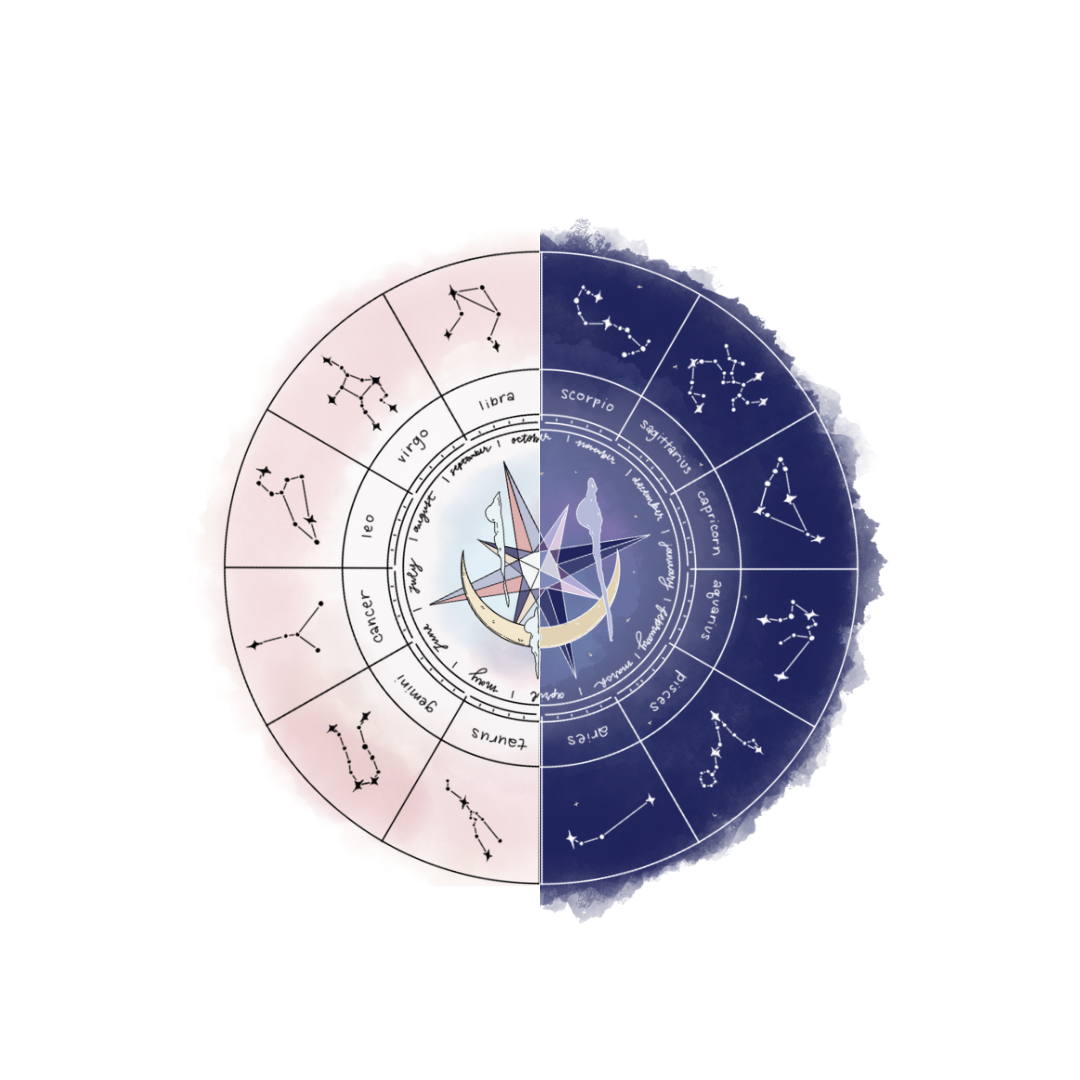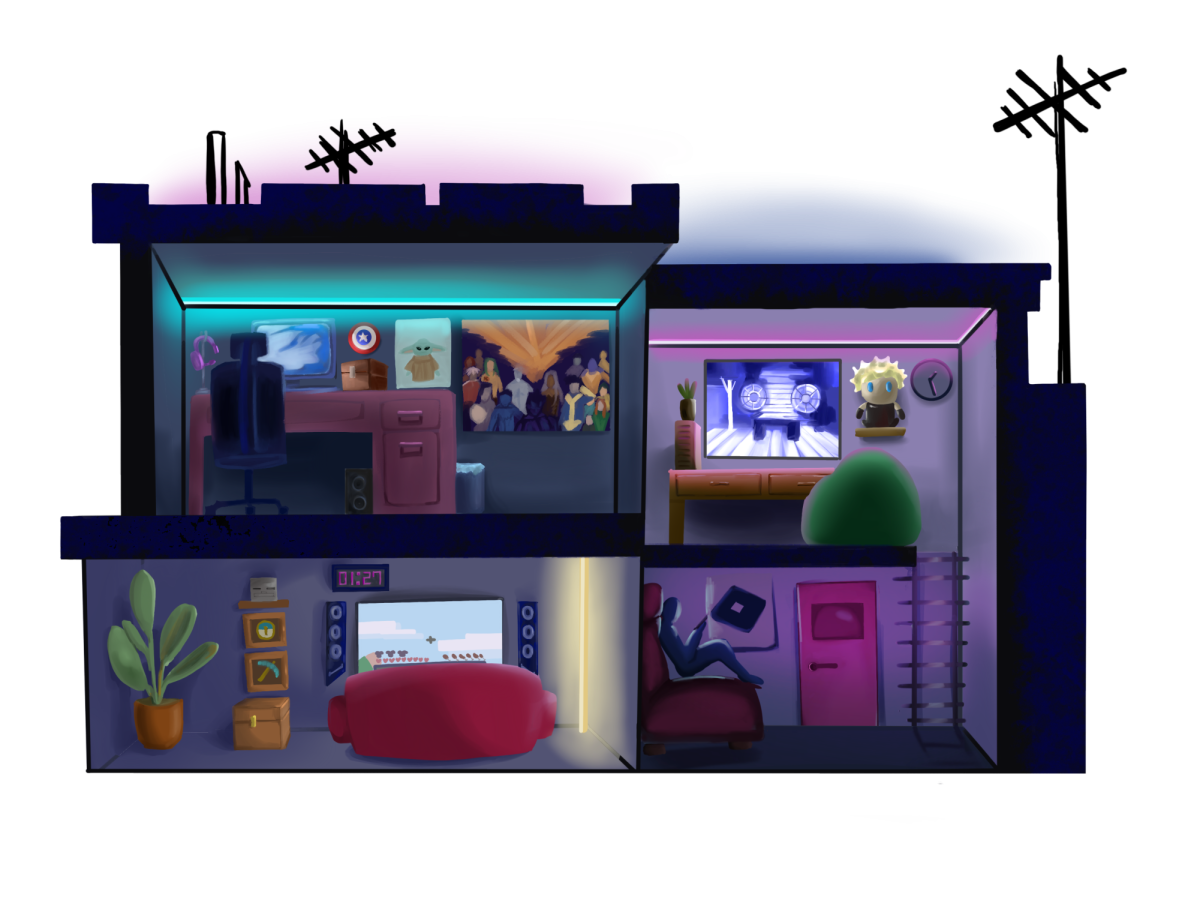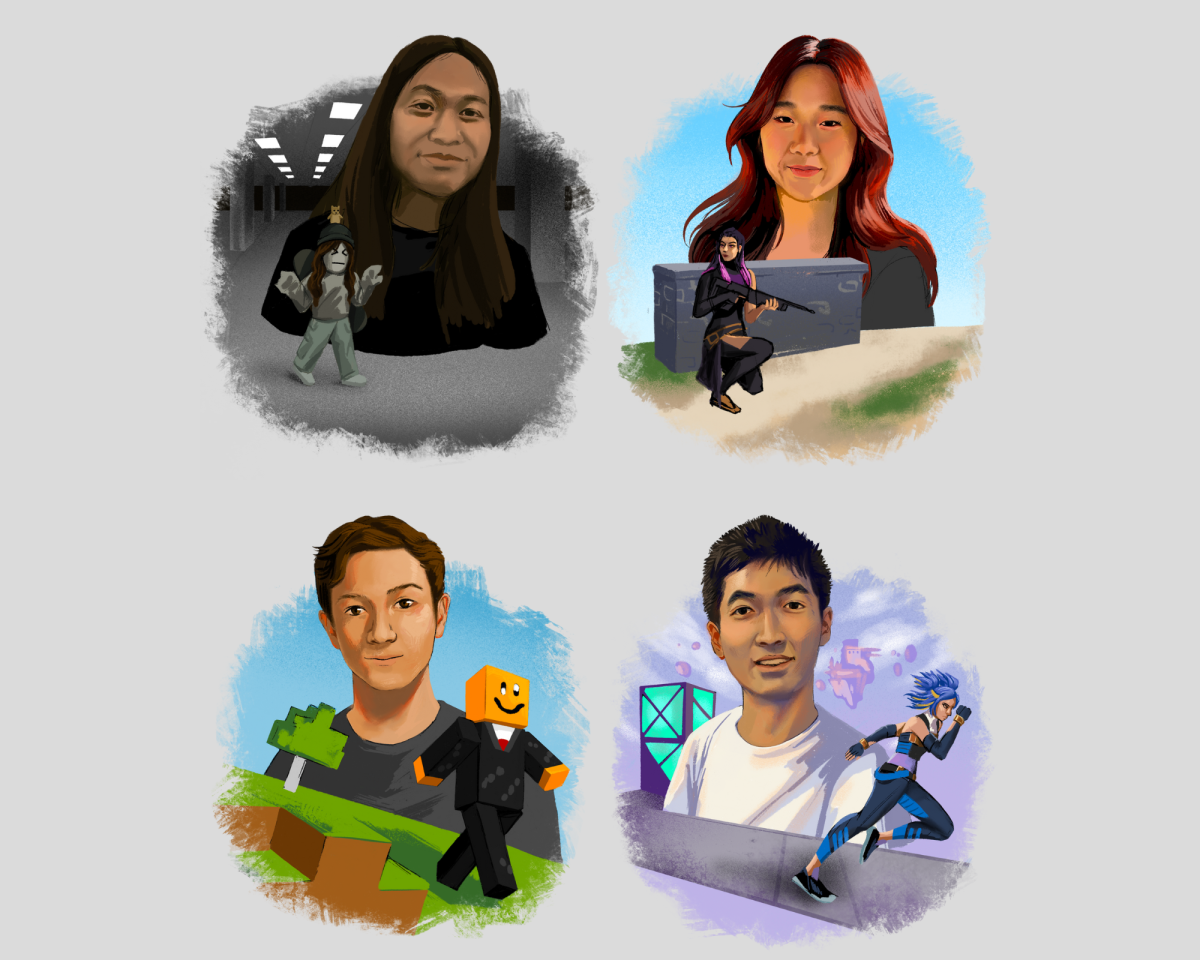During peak concert season, students flock to stadiums around the world to experience live concerts or festivals featuring their favorite artists. An endless amount of anticipation and buzz surrounds these events: Tickets sell for thousands of dollars, and setlist predictions are posted as concert dates creep closer. Students attend concerts in hopes of building memories and connections with others — and, in some cases, maintaining social standing.
Although the main component of a concert is the music, Advanced Placement Psychology teacher Warren Collier believes that concert participation encompasses much more. “I can just (listen to my favorite songs) on Spotify or the radio,” he said. “Concerts are not just about the music — it’s about the experience. It’s about the bonding that you feel with both the artist as well as everyone else who is there for the same reason. That really helps increase the emotional impact.”
Choir teacher Angelina Fitzhugh agrees that the connections made at concerts add to their appeal. “There’s something
about being with other people who love the same thing you do that increases the excitement and enjoyment,” she said. “There is nothing that can compare to being in a concert, and the artist stops but the singing continues. There’s nothing. bigger than that.”
These crowded events have become all. the more enticing in the post-pandemic world, leading to higher ticket prices as students become increasingly willing to shell out large sums of money, according to Fitzhugh. “Humans have this innate desire to be in groups,” she said. “We experienced not being able to be in groups during the pandemic, so I think that’s a part of what brought (concert culture) back.”
Psychology Club Co-President junior Kate Hamilton attributes the cohesive community and atmosphere of concerts to a psychological phenomenon called “group behavior.” “People tend to be strong in groups,” she said. “(Group behavior) is a strong drive to be with each other. The need to talk to each other and be social is similar to the need (for food or water).”
Beyond the connections that are formed among audience members, Collier also stresses the one between concertgoers and the artist, which provides a sense of intimacy that listening to songs on a device does not. “(At a concert), I’m not just listening to the music alone or the song alone, but maybe the artist will tell me about what inspired them to write a song or the story behind something,” he said. “I get to know them more. I get to know them more personally, and that helps me increase my interest in and enjoyment of the song.”
Although Psychology Club Co-President junior Maddy Fitzpatrick agrees that most concertgoers buy their tickets due to intrinsic motivations, she also notes the potential influence of peer pressure. “It’s similar to why people spend money on clothes or makeup,” she said. “It’s not necessarily bad, it’s just to fit in with a greater crowd.”
According to Collier, these social pressures can make concert-going seem imperative.“If all of my friends go to (the Eras Tour), I will feel that much more desire to go, whether I have the money or (if) I’m begging my parents for it,” he said. “If all my friends are going, I would want to have fun with my friends.”
Above all else, however, Hamilton believes that the concert experience prompts self-discovery through the formation of tight-knit communities. “People are dressing up because they want to feel like they belong,” she said. “It’s a sort of sense of identity. People can connect to that (as they) are trying to find some kind of purpose with the music.”
























